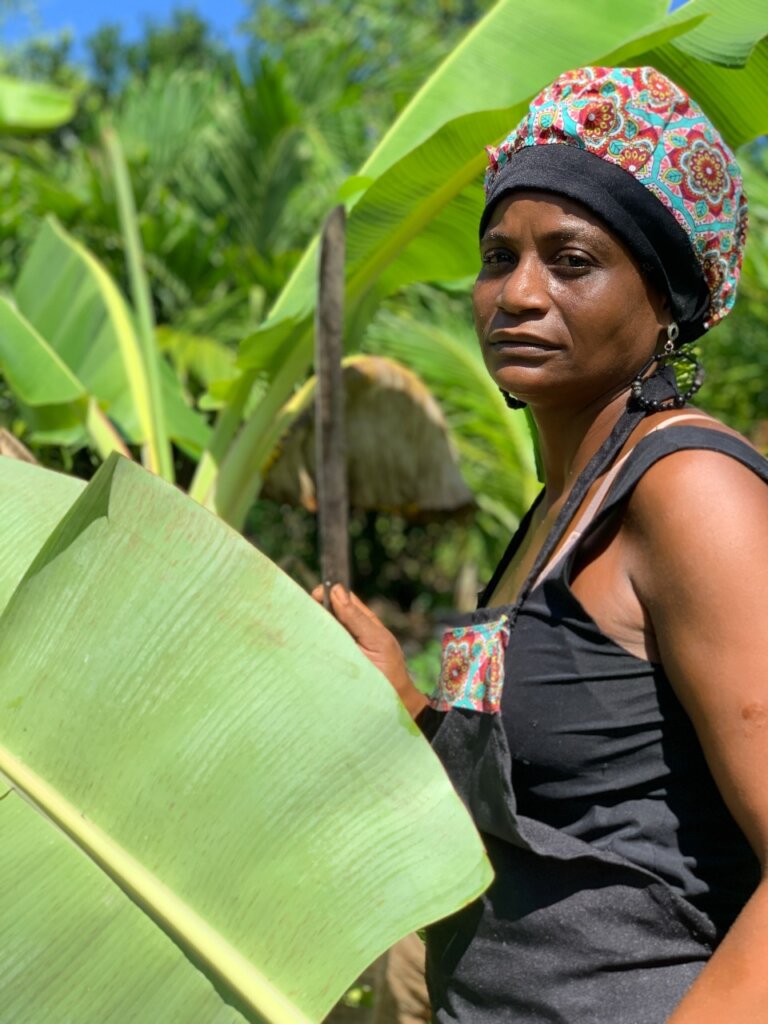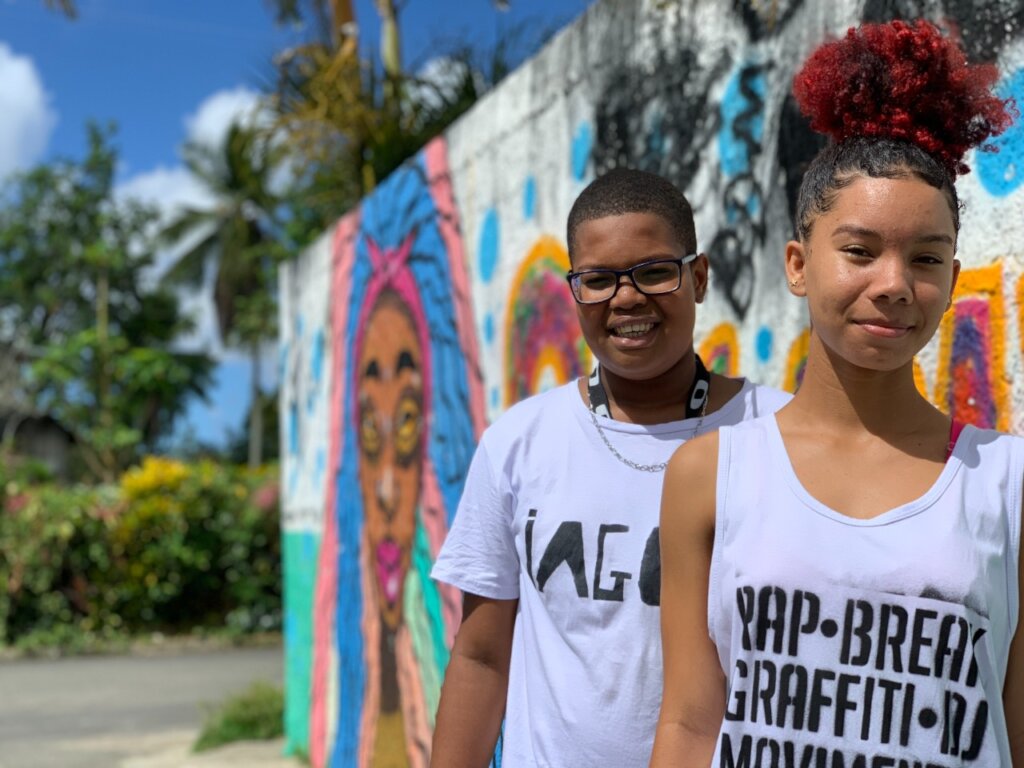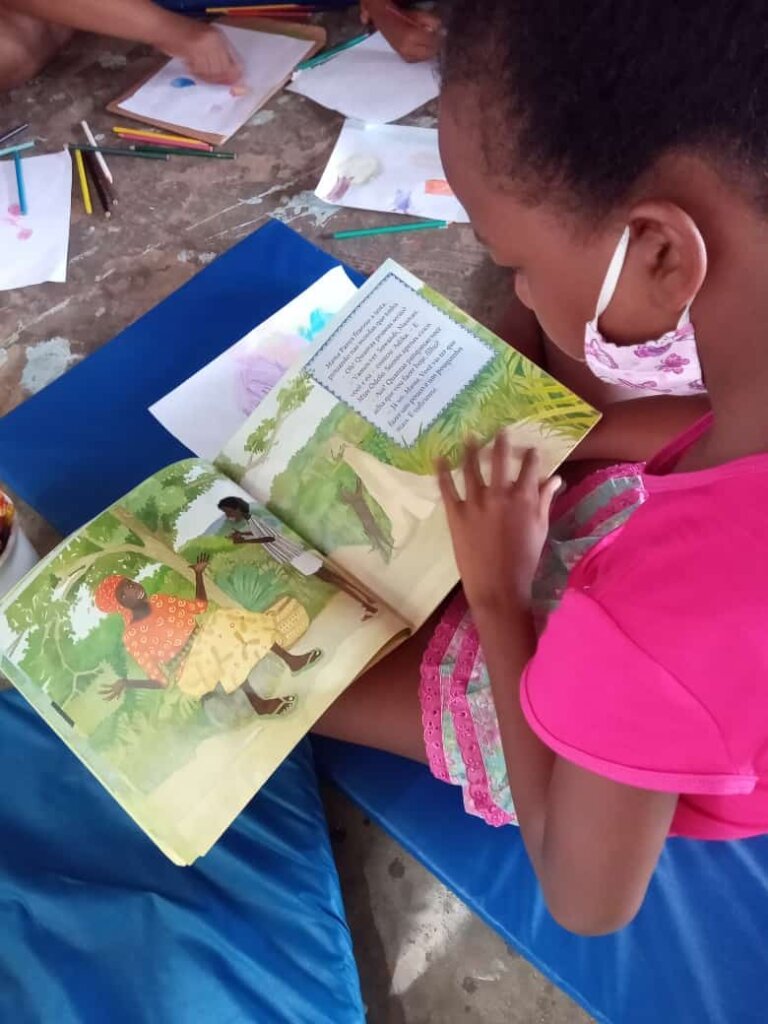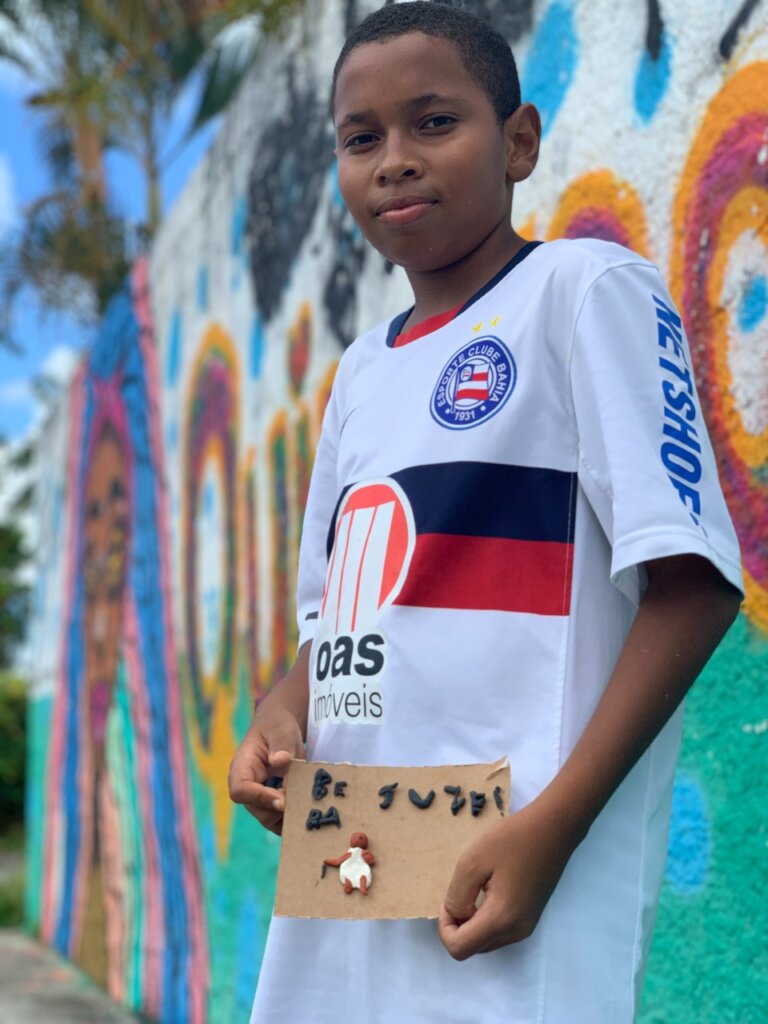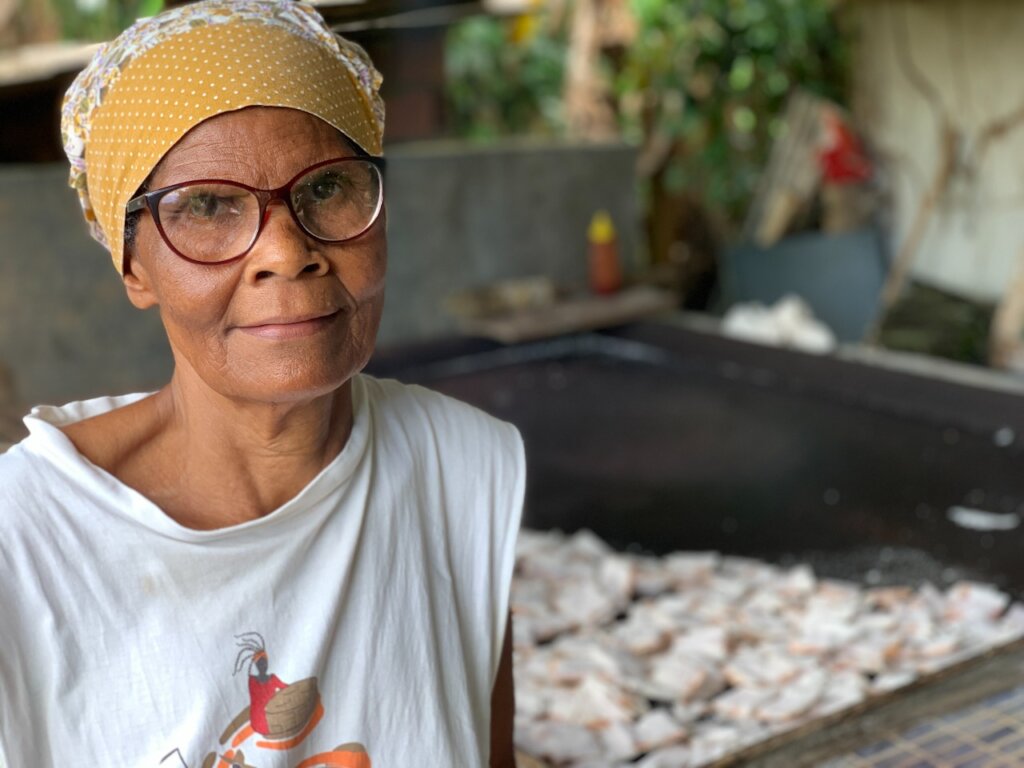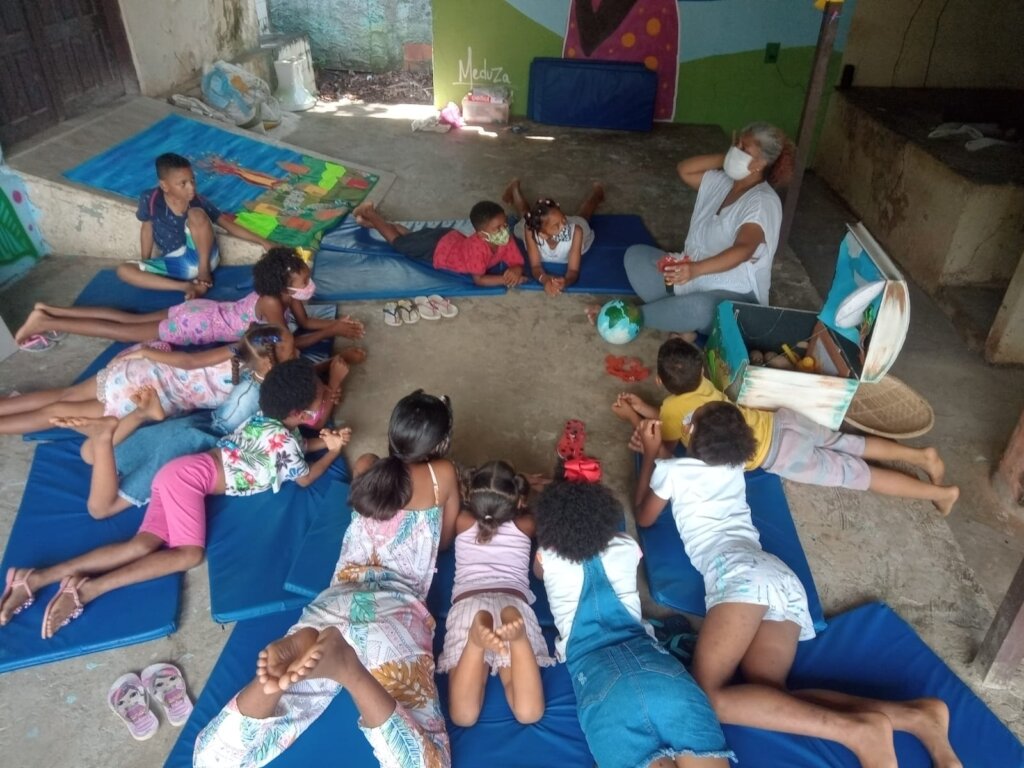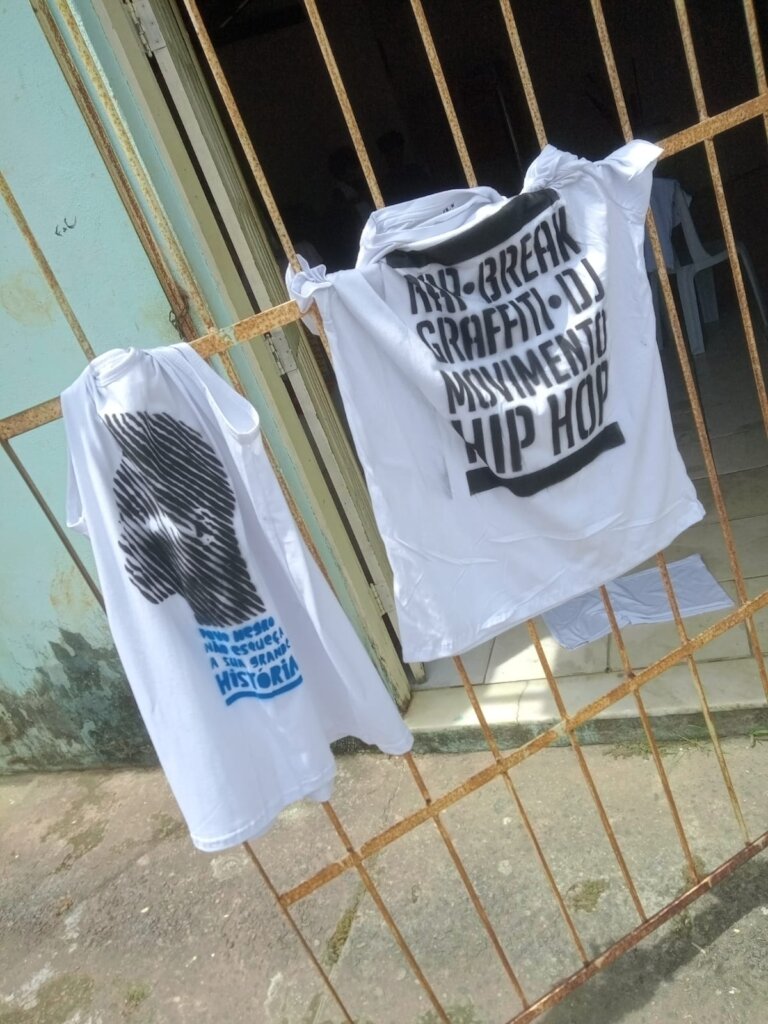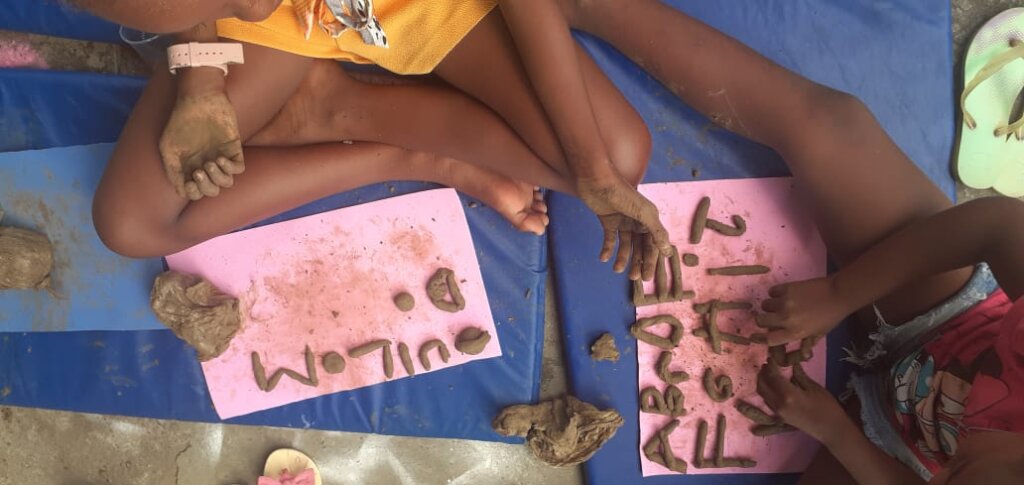By Cressida Evans | Consultant
Dear Friends and Supporters
VIVA THE QUILOMBO!!!!
Since our last report, with all our reverence for ancestry and with all your help, Viva a Vida has been working in the Cordoaria Quilombo. The community, which has resisted for over 260 years, contains 300 families and around 1,200 inhabitants.
The relationship between Viva a Vida and the quilombo started slowly, through our response to the terrible effects COVID-19 has had on the community. With your donations and with support from GlobalGiving’s emergency fund, we’ve helped to meet the needs of a good part of the community, with food, hygiene kits, activities and respect.
Today, we can say that we are really connected to the quilombo, structuring our work towards more activities and projects to improve lives. At the end of last year, we received funding from the Bahia State Government, through its Department for the Promotion of Racial Equality (SEPROMI) to carry out an intervention there.
We are providing training and emergency aid activities for 23 women who are members of the Cordoaria flour house. The training focuses on black entrepreneurship, given that the women live from the products, principally beiju pancakes, they make from manioc flour and all this production had to stop during the pandemic. Viva a Vida’s training was aimed at qualifying the women as black entrepreneurs as they started to get back to work, hence the name of the project “Beijuzeuras in resistance: getting back to work!” Other activities include a course on racism and rights in which they have been able to reflect on the importance of maintaining their traditions in order to strengthen their community group.
Looking at the family as a whole, we have been amazed by the talent of the young people in the community who have learned to make graffiti T-shirts and participated in conversation circles about violence (an important topic in a community which already contains individuals and groups involved in drug trafficking and violence). And with the children, we’ve had unique encounters, helping them reclaim their quilombola identity by telling stories that reflect their Afro-Brazilian history, and setting up an important partnership with the local school.
Other sustainability activities for the women beijuzeuras include restructuring their social media platforms, making uniforms, standardizing their audio-visual material, and financial support for the purchase of materials and kits with supplies and utensils. With your support, we have been able to ensure that the most important thing happens: QUILOMBOLA WOMEN ARE FINANCIALLY SELF-SUFFICIENT AND ABLE TO LIVE WITH DIGNITY!
Here are some of the things people have said about the project:
“My dear, we will never forget the affection you at Viva a Vida have for us. Not just because of the benefits, but for everything we're learning here,” Maria, Beijuzeira.
“Quilombo children really need this. Other people coming to talk to them about what we try to say every day... you are beautiful, beautiful black princesses” Alexandra, head of the local quilombo elementary school.
“I'm very excited about everything I see here. As a black woman, I know the importance of seeing other black women going through these formative experiences” Liliane, SEPROMI funding inspector.
Other Activities:
a) Oxiteno Mentoring:
Some of Viva a Vida’s young people are completing the Letters and Careers project. At this stage, they are accompanied by volunteer mentors from Oxiteno, directing their life plans and focusing on developing strategies to enter the world of work.
“I never imagined I needed to have a professional life plan, but now I know how to put down different strategies on paper and choose the path to follow. I no longer feel frustrated or lost” Miqueias, young male participant.
“It's been wonderful to have a mentor, he was a great match, I'm learning so much” Valéria, young female participant.
b) Vocação:
We’re happy to tell you that we’ve just finalized a great partnership with the Vocação Institution, based in São Paulo, which provides unique and essential work supporting young people in their professional development and training. They focus on opening up opportunities for marginalized young people from the city peripheries, to help them access quality education and work. Together we’re going to train 500 students from the public school system in ways to enter the job market, with a particular focus on ‘soft skills’, to enhance interpersonal communication and self-esteem.
c) Funder Visit - Global Fund For Children (GFC):
On April 02, Kimberly and Nayara, GFC representatives, visited Viva a Vida to find out about our work on the “Beijuzeuras in resistance: getting back to work!” project in the Cordoaria Quilombo. During the visit, the quilombola children had great fun listening to Maju, our fantastic storyteller, telling them stories that reflect their Afro-Brazilian and quilombola history. The children absolutely loved it! To end the visit with a smile, representatives of the Cordoaria Quilombo presented the visitors, and Cressida (Viva a Vida International Consultant and former Coordinator), with souvenirs bags of delicious products made in the quilombo.
Project reports on GlobalGiving are posted directly to globalgiving.org by Project Leaders as they are completed, generally every 3-4 months. To protect the integrity of these documents, GlobalGiving does not alter them; therefore you may find some language or formatting issues.
If you donate to this project or have donated to this project, you can receive an email when this project posts a report. You can also subscribe for reports without donating.
Support this important cause by creating a personalized fundraising page.
Start a Fundraiser